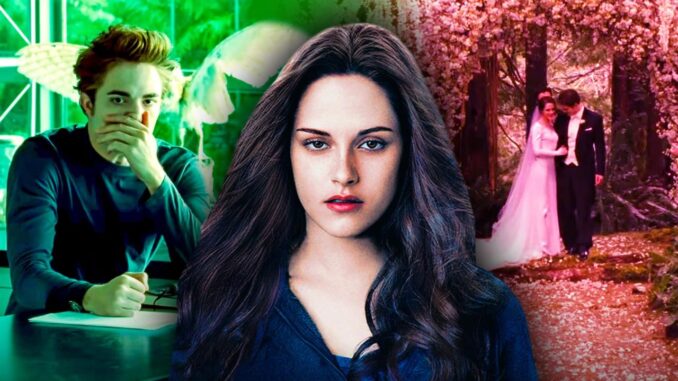
From Pack to Prowler: The Glorious Absurdity of Taylor Lautner's New Hunt
The news landed like a silver bullet, sharp and glistening with a hint of the absurd: Taylor Lautner, the very embodiment of the earnest, perpetually shirtless teenage werewolf Jacob Black, is reportedly starring in a new comedy series as a werewolf hunter. The collective internet did a double-take, then erupted in a chorus of delighted cackles. This isn't just casting; it's a masterstroke of meta-comedy, a knowing wink to a pop culture phenomenon that promises to transform the familiar into something brilliantly, hilariously new.
The initial shock of the premise quickly gives way to the intoxicating potential. Taylor Lautner, whose most famous role involved him phasing into a giant, loyal wolf at the drop of a hat, now wields stakes and silver instead of paws and fangs. The irony is so thick you could carve it with a sharpened piece of wolfsbane. Imagine the opening scene: Lautner, perhaps a little older, a touch wearier, but still possessing that signature athletic build, meticulously polishing a crossbow. The camera might pan to a faded photograph on his desk – a slightly younger, happier version of him, maybe even with a CGI wolf-head photoshopped beside him, or a subtle, almost imperceptible Twilight Easter egg hidden in the background. This built-in, pre-established narrative for the actor himself is a goldmine. Is his character a former werewolf who’s seen the error of his ways? A human who gained intimate, perhaps traumatic, knowledge of lycanthropy through a past encounter? Or simply a man who looks suspiciously like that infamous character, forever haunted by the shadow of a certain sparkly vampire saga? The comedic possibilities are endless.
What kind of comedy would this series lean into? Given Lautner's earnest delivery and impressive physical comedy chops – often underutilized in his more serious roles – one can envision a blend of slapstick, self-aware humor, and maybe even a touch of dark comedy. His hunter character might be incredibly adept at the physical aspects of the job, leaping across rooftops and dodging claws with practiced ease, only to utterly bumble the social or intellectual demands. Perhaps he's perpetually exasperated by the sheer inefficiency of werewolf hunting, or constantly mistaking innocent furry dogs for his quarry. The humor could stem from his attempts to "reason" with werewolves, drawing on his supposed insider knowledge, only to be met with growls and bared teeth. Every close call, every near-miss, could be punctuated by a dry, world-weary sigh, perhaps a muttered lament about the good old days when phasing was simply a matter of getting angry.
Furthermore, the show offers fertile ground for playful subversion of supernatural tropes. Instead of brooding, angsty creatures, the werewolves could be equally comedic – a pack of millennials trying to unionize, or an elderly knitting circle who transform under the full moon into surprisingly agile, grumbling beasts. Lautner's character might be forced to team up with the unlikeliest of allies: a conspiracy theorist who believes werewolves are actually government agents, a perpetually stoned cryptozoologist, or even, dare we hope, a sparkly vampire with a penchant for anachronistic fashion. The supporting cast could serve as foils, constantly misunderstanding Lautner’s past, or perhaps, subtly dropping references to his cinematic history, much to his character's chagrin. "You know, you remind me of that guy from the movies… what was his name, Jake?" a clueless bystander might ask, prompting a forced smile and an internal groan from our hero.
Ultimately, the brilliance of Taylor Lautner starring in a werewolf hunter comedy series lies in its audacious embrace of irony. It transforms a pop culture icon's most defining role into the very source of its humor. It’s a meta-narrative wrapped in a creature feature, a send-up of the supernatural genre delivered by one of its most recognizable faces. This isn't just a new role for Lautner; it's a glorious homecoming, a chance to reclaim and playfully dismantle the very legend he helped create. And for audiences, it's the promise of a hearty laugh, a knowing nod, and the sheer delight of watching a werewolf turn the tables, one silver-tipped arrow at a time. The hunt, it seems, has never been so hilariously unpredictable.
